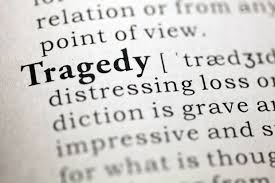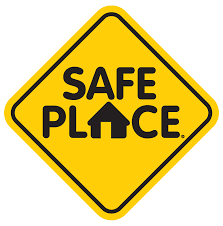The recent shooting at a Florida high school has shaken many of us across the country. Not only has it devastated those families directly involved, but it has ensued fear and concern for parents, school aged kids, teachers, law enforcement, and many others.
So many parents find themselves at a loss for how to talk about tragedies such as these with their kids. Whether it’s death of a friend or loved one, a school shooting, a life threatening illness, or a suicide, it can be tough for parents to find the words. What do you say in moments like this? How do you discuss the harsh realities of the world with them in a way that doesn’t elicit fear and anxiety?
Here are 10 things that may help parents talk to kids about tragedy:
-Explain that bad things happen in life, but that doesn’t make life bad. Reminding kids that both good and bad things happen in life, and that we choose how we respond to them. Ask them on a regular basis what is good in their life, and what things are not so good. This gets them thinking about positive and negative things in their world – which is inevitable.
–Let them know it’s okay to be scared. Kids get scared, too. No one wants their kid to be scared, so they often try to reassure them or tell them everything is okay. One of the best ways to respond when a kid is scared, is to acknowledge that it is okay for them to feel that. Let them know that adults feel scared, too. Let them know that you will take every effort to protect them. Sit with them, hold them, when they are feeling this way. You want them to be able to trust that feeling of healthy fear within them. This kind of healthy fear helps them develop boundaries for themselves around what they should or should not do.
-Encourage them to talk about their feelings with a trustworthy adult. So many of the things that kids experience (e.g. anxiety, depression) can be decreased by them having the time and space to talk about their feelings. This sounds so simple, but kids tend to shy away from expressing their feelings unless coached that it is okay. Let them know that not expressing their feelings can have a negative impact on them, and make them more unhappy.
-Model healthy expression of feelings for them. If kids grow up in an environment where they don’t really see adults express emotions, then they will learn to do the same. When kids see adults express feelings such as anger, tears, sadness, and joy, then they intrinsically learn that it’s okay to do the same. It is key here that adults express these in a healthy way. Rage yields rage; shame yields shame; violence yields violence. Expressions of emotion in these forms can have a very negative impact on kids. Appropriate expressions in adults, however, yield appropriate expression for kids (generally speaking).
-Let them know it’s okay to be sad when bad things happen. We want to let kids know that it is okay to be sad just as much as it is okay to be scared. In fact, letting them know that it’s okay to have any feelings is a healthy life skill. Again, reinforcing that adults get sad, too. Then letting them know that if we allow ourselves to feel sad, then we will also feel happy again. Physical nurturance when kids are feeling difficult emotions like sadness, pain, and guilt is also very effective. Even when kids are feeling sad about choices they have made. Reassuring them that it is safe to make mistakes, and that they are still loved is critical.
-Let them know that it’s important to make good choices. Use events in life as an opportunity to teach them about making good choices. Present real or fictitious scenarios where they have the opportunity to choose. This helps them develop critical thinking skills. Use positive reinforcement when they make good choices.
-Reinforce the concept of consequences. Just as much as you want to reinforce their good choices, you also want to teach them about consequences of poor choices. Allowing kids to experience natural consequences is a very effective method for helping them understand the results of their behavior. For example, if you stay up too late on a school night, then you are going to be tired the next day. If you don’t study for your test, then you will make a poor grade. Too many times we try to protect kids from the natural consequences of behavior. This can lead to the lack of responsibility and ownership for their choices. Let them experience consequences, and use these as teaching moments (rather than shaming moments).
-Remind them that it’s always okay to ask for help, and that everyone needs help sometimes. First and foremost, let them see you ask for help. Kids learn more from what they see than what they hear. Use accidents they may experience as moments to remind them that next time they could (not should) ask for help. Go over who are important people to ask for help from: parents, teachers, coaches, friends’ parents, anyone that you trust to point your kid in the right direction.
-Remind them the importance of making safe and healthy choices. In years past, “stranger danger” and not answering the door for strangers were generally what we learned about safety.  Today, there are many other opportunities for kids to be get into unsafe situations, and not even realize it. Ignore the notion that talking about it will “give them ideas” to do it. The research shows that this is NOT true. Talk about internet dangers, talk about suicide (yes I know that sounds scary), talk about bullying. All of those things that make you uncomfortable, and that we want to think won’t affect “our kid”. Talk about them. One day, you may be glad you did.
Today, there are many other opportunities for kids to be get into unsafe situations, and not even realize it. Ignore the notion that talking about it will “give them ideas” to do it. The research shows that this is NOT true. Talk about internet dangers, talk about suicide (yes I know that sounds scary), talk about bullying. All of those things that make you uncomfortable, and that we want to think won’t affect “our kid”. Talk about them. One day, you may be glad you did.
-Teach them to treat others kindly and with love. In a world with so much divisiveness and hatred, raising a generation with care and compassion for others is even more important than it ever has been. Teach your kids the importance of these character traits. Again, the theme of modeling this is critical here. Teach them to get outside of themselves and serve. Provide them with experiences to be around people who are different from them so they can learn to respect those who aren’t the same. Use situations where they may innocently judge someone by reminding them that everyone has a story.
Parenting is tough on its own, and its even harder when addressing difficult situations. That being said, being a parent is one of the most rewarding jobs you could ever have. If you don’t remember anything else, just remember to keep showing up. Do the best that you can. Your kids will feel that, and that in and of itself develops a sense of safety in their world.